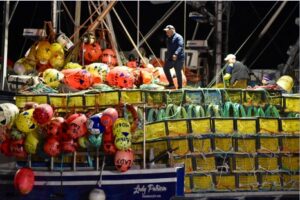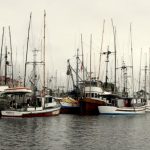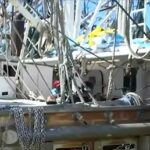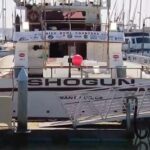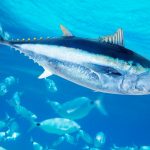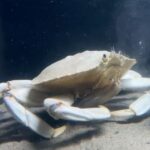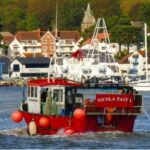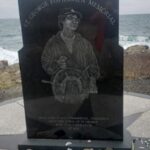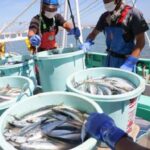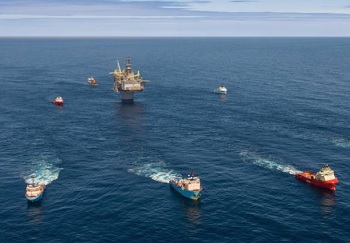Monthly Archives: August 2017
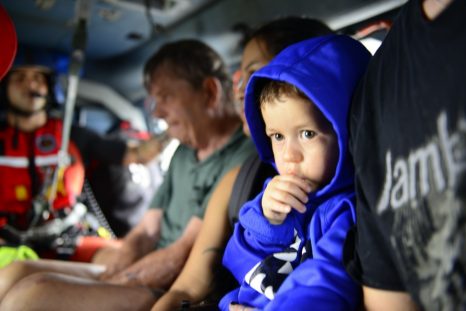
Houston: Coast Guard responds after Hurricane Harvey
U.S. Coast Guard continues to conduct urban search and rescue in the greater Houston area. Coast Guard aircrews conducted two medical transfers of two critical patients from local hospitals to Memorial Herman Hospital medical center Sunday night. “Our crews have been operating non-stop,” said Capt. Kevin Oditt, Coast Guard Incident Commander. “This is an all hands on deck event bringing crews from all over the nation to help with our response.” click here to read the story click here for more images13:14
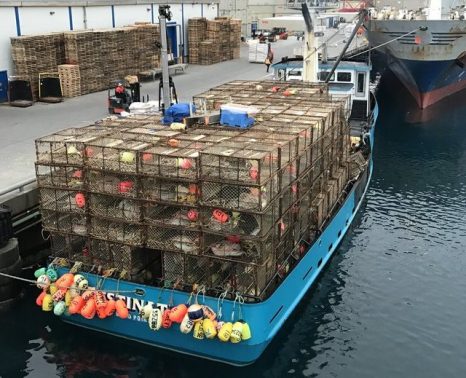
Coast Guard Marine Board of Investigation – Icy spray, heavy pots may have doomed Seattle crab boat F/V Destination
What caused the February sinking of the Seattle-based Destination in the Bering Sea? On the morning of Feb. 11, crab-boat skipper Daher Jorge received a Coast Guard radio request to assist a Bering Sea search for a missing vessel — the Seattle-based Destination. But Jorge’s own boat, the Polar Sea, was burdened by a thickening mantle of ice that made it more vulnerable to sinking. His crew had been unable to break off all that ice while at sea, so Jorge felt compelled to reject the call for assistance and head to port in Alaska’s Pribilof Islands. “That was the only reason we did not go. For our own safety,” Jorge testified during two weeks of hearings held earlier this month in Seattle by a Coast Guard Marine Board of Investigation into the sinking of the Destination and loss of all six of its crew. click here to read the story 12:44
Grey Seals becoming a growing headache for fishermen in Danish waters
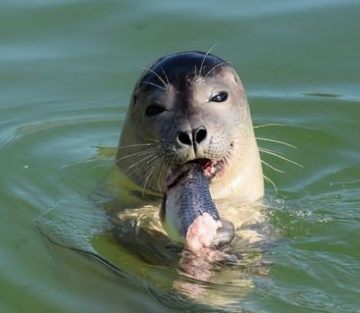 Seal populations in the Wadden Sea are growing fast and their appetite for fish is becoming an increasing problem, especially for gill net fishermen. The number of grey seals has reached a record high this year, with 5,445 adults being counted in the Wadden Sea – an increase of 10 percent on the numbers from last year. Seals have been depreciating the sustainable coast fisheries that green organisations and politicians are keen to encourage. They rip up the nets and eat the parts of the fish that they like best. click here to read the story 11:22
Seal populations in the Wadden Sea are growing fast and their appetite for fish is becoming an increasing problem, especially for gill net fishermen. The number of grey seals has reached a record high this year, with 5,445 adults being counted in the Wadden Sea – an increase of 10 percent on the numbers from last year. Seals have been depreciating the sustainable coast fisheries that green organisations and politicians are keen to encourage. They rip up the nets and eat the parts of the fish that they like best. click here to read the story 11:22
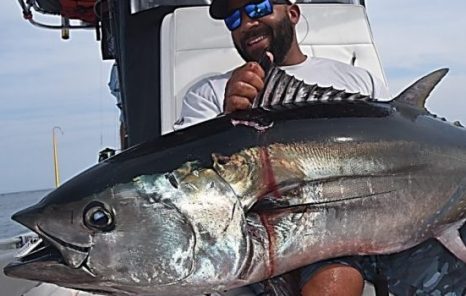
It’s not okay
As we get into the thick of tuna season right now, and plenty of “large-medium” and “giant” class bluefin tuna are being caught by anglers around Cape Cod, and “small mediums” as well as good-sized yellowfin in the New York Bite, I thought it more than appropriate to say this… It’s not okay…. It’s not okay for an angler to take his or her bluefin, or yellowfin, or bigeye or any fish for that matter and sell it to the local restaurant through the back door… for freak’n gas money. Unfortunately, this kinda thing happens pretty regularly up here. Don’t tell me that it doesn’t, because I hear the bragging frequently. And don’t tell me that it’s a victimless crime. The hard-working full-time commercial fishermen are the first to get screwed. But it’s the consumer as well,,, click here to read the story 10:34
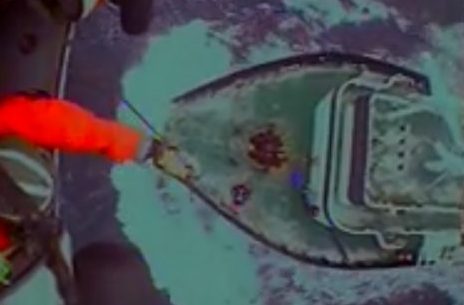
Coast Guard medevacs man from fishing vessel near Cold Bay, Alaska
A Coast Guard Air Station Kodiak MH-60 Jayhawk helicopter crew medevaced a crewman from the fishing vessel Unimak, a 183-foot fishing trawler, near Cold Bay, Alaska, Friday. The Jayhawk crew safely hoisted the ill crewman from the Unimak, which was 46 miles northwest of Cold Bay, at 8:52 p.m. and transported him to emergency medical personnel at the Cold Bay Clinic at approximately 9 p.m. Coast Guard District 17 Command Center watchstanders in Juneau received notification from Health Force Partners stating a Unimak crewman had symptoms of dizziness and weakness, along with general confusion. A Coast Guard flight surgeon recommended a medevac. click here to watch video 09:14
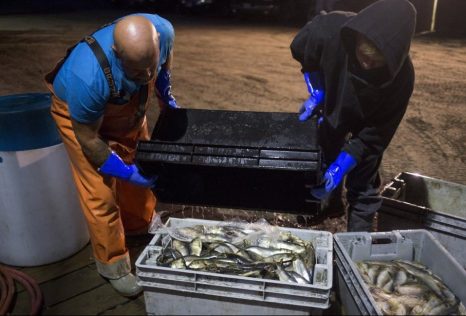
Lobstermen test new bait as hedge against herring price spikes
Two lobstering co-ops in Tenants Harbor and Port Clyde are working with The Nature Conservancy to see if they can freeze the alewives that bait their traps so successfully each spring to catch lobster at other times of the year. If it works, alewives could be the affordable bait they need when their usual favorite, Atlantic herring, is in short supply, such as it is again this summer. “It’s the second year in a row where we’ve had bait problems,” said Josh Miller, a 40-year-old lobsterman who belongs to the Tenants Harbor Lobstermen’s Co-op. “Most wharves are on (herring) rations. The prices have gone up 10 percent already. We started the season with prices that never dropped from last year, when we had a bait shortage. Bait is a huge issue.” click here to read the story 07:49
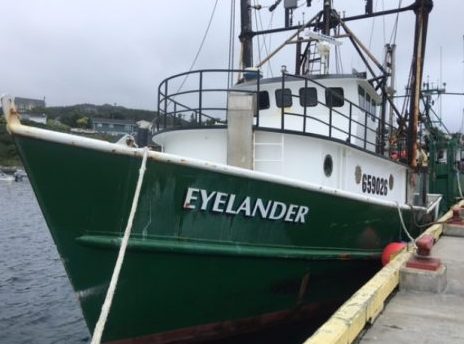
Biologist slams U.S. vessel for running aground in Witless Bay Reserve
Oil from a U.S. fishing vessel killed a number of birds inside the Witless Bay Ecological Reserve on Friday, and a seabird biologist says the boat had no business being so close to Green Island to run aground in the first place.,, The Canadian Coast Guard’s environmental response team cleaned up Friday, and DFO said no pollution was reported in Witless Bay. Transport Canada is investigating. Montevecchi said the Eyelander, an American fishing boat, was apparently too close to Green Island early Friday morning and ran aground. click here to read the story 20:46
No oiled birds spotted in Witless Bay area – In a statement Tuesday, the Canadian Coast Guard said its environmental response surveillance flights — and surveys by boat of the area on Saturday along with the Canadian Wildlife Service — confirmed there was no pollution in the area. Meantime, two dive surveys have been completed on the fishing vessel with no sign of diesel or oil leakage. click here to read the story 8/28 16:39
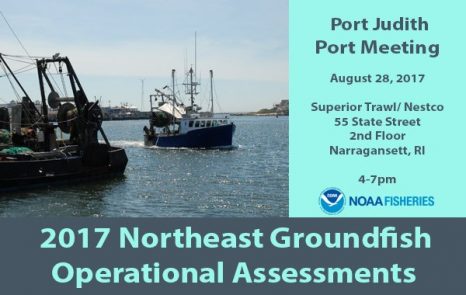
2nd Round of 2017 Groundfish Assessment Port Meetings Scheduled
The Northeast Fisheries Science Center is coming to a port near you! Join us for the second set of port meetings between August 28 and September 7 to discuss the upcoming groundfish operational stock assessments. These meetings will include an informal explanation of the stock assessment process, the cooperative research program, and ways that your concerns can be addressed by the science center. We’d like to talk to commercial and recreational fishermen. We’re listening to what you have to say. August 28-Narragansett RI, August 30-Montauk, September 6-Portsmouth, September 7- Plymouth. See the full schedule of confirmed meetings. Click here 16:27
Opioid Crisis Taking Toll On Maine Lobster Industry
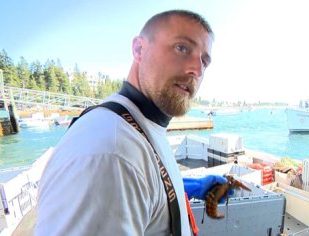 The nation’s opioid crisis has hit hard in Maine, where at least one person died every day last year of drug overdoses. It’s also penetrated the state’s lobster industry. Some fishermen are suffering in silence in a community that rarely asks for help. Josh Kane has spent more than 15 years fishing off the coast of Maine. For 10 of those years, he struggled with an opioid addiction as his fellow lobstermen looked the other way. In Washington County, economic leaders say the impact of the opioid epidemic on the lobster industry could easily affect an entire generation. “If you look around a coastal town, you have a sense of the value of the catch coming in,” Rudelitch said. “That new roof, that investment that should have come from a series of good years, just isn’t.” click here to read the story 15:16
The nation’s opioid crisis has hit hard in Maine, where at least one person died every day last year of drug overdoses. It’s also penetrated the state’s lobster industry. Some fishermen are suffering in silence in a community that rarely asks for help. Josh Kane has spent more than 15 years fishing off the coast of Maine. For 10 of those years, he struggled with an opioid addiction as his fellow lobstermen looked the other way. In Washington County, economic leaders say the impact of the opioid epidemic on the lobster industry could easily affect an entire generation. “If you look around a coastal town, you have a sense of the value of the catch coming in,” Rudelitch said. “That new roof, that investment that should have come from a series of good years, just isn’t.” click here to read the story 15:16
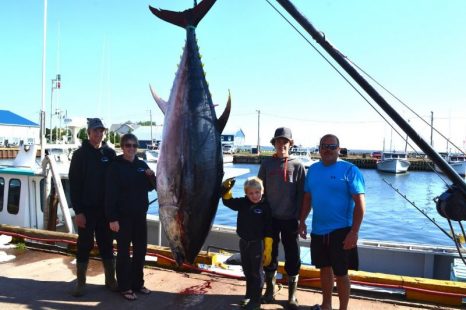
P.E.I. tuna fishery just getting started
They set sail on the Ocean Drifter out of Alberton Harbour at 4:30 a.m. on Thursday and they were back in port six hours later with a 744-pound bluefin. “I didn’t think he was that big,” Captain Wallace said, indicating he thought the fish probably weighed 500 to 600 pounds prior to bringing him onboard. He then upped his estimate to 700 to 750 pounds before learning just how close the scales put the weight to his higher number.,, The season opened Aug. 2 and , so far, only about a dozen tuna have been landed. click here to read the story 14:32
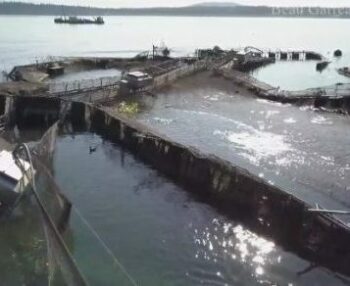
Washington State halts salmon farm permits after fish escape – Critics call for Land Based Aquaculture
Washington Gov. Jay Inslee has directed the Department of Ecology to put on hold any new permits for net pens after thousands of Atlantic salmon escaped into Puget Sound earlier this month from a damaged salmon farm. State officials also announced on Saturday the formation of a response team made up of the departments of Natural Resources, Fish and Wildlife, and Ecology. The team includes the Office of the Governor and state Emergency Management Division. It’s not yet clear how many non-native Atlantic salmon escaped into Puget Sound from Canada-based Cooke Aquaculture’s salmon farm off Cypress Island. click here to read the story 12:05
Salmon spill prompts open-net fish farm critics to tout benefits of land-based aquaculture – Critics of open-net fish farms say the escape of Atlantic salmon from a Washington state pen should convince Canada to support a transition to land-based aquaculture, used by most of the world. click here to read the story 12:09
Herrera Beutler: To save steelhead, we must cut sea lion numbers
 Steelhead, longtime residents in our rivers here in the Pacific Northwest, are now approaching extinction with alarming speed. This isn’t exaggeration; the Oregon Department of Fish and Wildlife found that one population of steelhead has an 89 percent chance of becoming extinct in the not too distant future. The culprit for the fish’s demise? Sea lions. Experts are pointing to the increased population of California sea lions as the biggest threat. The sea lions gather in locations where steelhead and salmon are the most vulnerable, like below the Willamette Falls or the Bonneville Dam, where these native fish species congregate before heading upstream to spawn. An alarmingly low number of native steelhead — just 512 — made it over Willamette Falls this year. click here to read the story 10:01
Steelhead, longtime residents in our rivers here in the Pacific Northwest, are now approaching extinction with alarming speed. This isn’t exaggeration; the Oregon Department of Fish and Wildlife found that one population of steelhead has an 89 percent chance of becoming extinct in the not too distant future. The culprit for the fish’s demise? Sea lions. Experts are pointing to the increased population of California sea lions as the biggest threat. The sea lions gather in locations where steelhead and salmon are the most vulnerable, like below the Willamette Falls or the Bonneville Dam, where these native fish species congregate before heading upstream to spawn. An alarmingly low number of native steelhead — just 512 — made it over Willamette Falls this year. click here to read the story 10:01
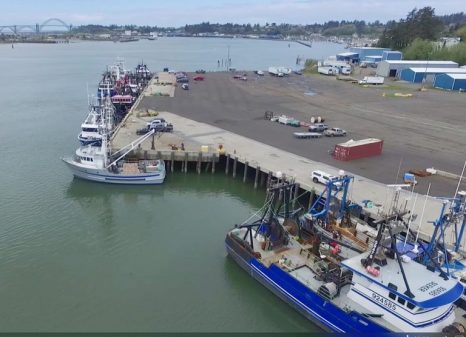
Two Newport Port Commissioners and Staff to Meet with Federal Grant Officials to Save International Terminal Project
Two Newport Port Commissioners and staff will meet Monday for a reality check with federal officials over a big grant to support the completion of the long-awaited International Terminal. The project involves the city of Newport that may be in a position to provide urban renewal bonding as well as support from the Hall family which owns waterfront property just to the east. But none of it can happen unless the Port can keep the effort on target and on time. click here to read the story 09:50
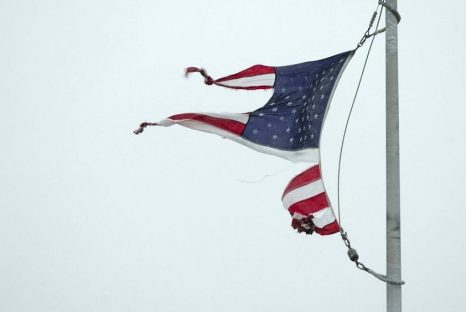
Harvey: Water rescues ongoing after nearly 20 inches of rain reported in Houston
Southeast Texas is experiencing “catastrophic flooding” from Tropical Storm Harvey, with forecasters saying nearly 20 inches of rain have fallen in the Houston area as of Sunday morning (Aug. 27). The National Hurricane Center said an additional 15 to 25 inches of rain are possible, with storm totals as high as 40 inches through Thursday. As of 7 a.m. Sunday, Harvey was about 45 miles northwest of Victoria, Texas, and about 65 miles southeast of San Antonio. It has maximum sustained winds of 45 mph and is moving southwest at 1 mph. click here for photo’s and story. 09:18
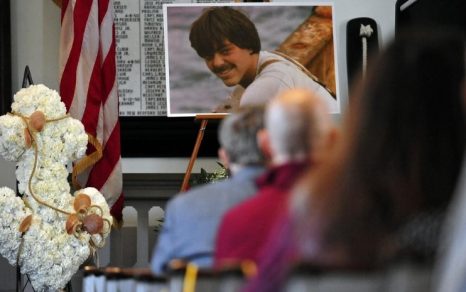
A proper fisherman’s farewell
New Bedford-A line of people wrapped around the entrance of Seamen’s Bethel, down Johnny Cake Hill and onto Union Street. Under cloudless skies, the crowd slowly filled the pews on the second and third floors. When no seats remained, some stood near the doorways and peered into the main area that would honor and remember Thomas Quintin Jr., who was lost at sea on July 3. Chatter of their favorite “that’s Tommy” stories echoed throughout Seamen’s Bethel until a few strums of an acoustic guitar silenced those in attendance as the memorial service began at 10:15 a.m by singing “Amazing Grace.” The two hours that followed mixed tears with laughter. click here to read the story with more images 19:28
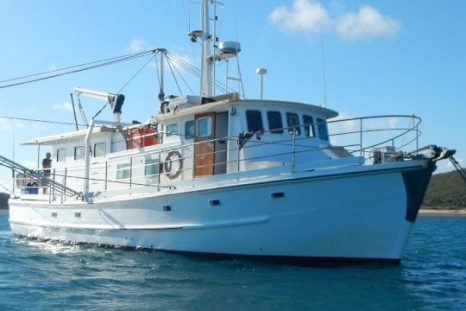
Tracking system trials commence on entire commercial fishing fleet in Australia
Fisheries Queensland Executive Director Claire Andersen said units were being trialled on crab, net and line vessels in the Gulf of Carpentaria, South East Queensland and the Great Barrier Reef, both offshore and inshore. “The trials will cover all conditions and vessel types, from 15 metre boats to small tinnies without power,” Ms Andersen said. “Tracking the entire Queensland fishing fleet will allow us to improve compliance, validate logbooks and provide a valuable tool for fishery management. Ms Andersen said we were committed to working with industry to ensure that the rules are practical and achievable for smaller inshore boats. (yes. of course!) click here to read the story 17:56
Hurricane Harvey Downgraded to Tropical Storm Over Inland Texas
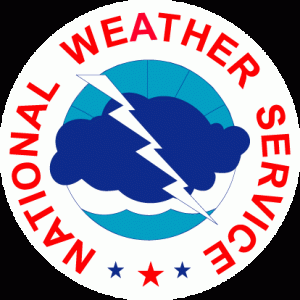 At 100 PM CDT (1800 UTC), the center of Tropical Storm Harvey was located by National Weather Service Doppler radar near latitude 29.1 North, longitude 97.6 West. Harvey is moving slowly toward the north-northwest near 2 mph (4 km/h), and little motion is anticipated during the next several days. Maximum sustained winds have decreased to near 70 mph (110 km/h) with higher gusts. Additional weakening is forecast during the next 48 hours. click here to read the update 15:33
At 100 PM CDT (1800 UTC), the center of Tropical Storm Harvey was located by National Weather Service Doppler radar near latitude 29.1 North, longitude 97.6 West. Harvey is moving slowly toward the north-northwest near 2 mph (4 km/h), and little motion is anticipated during the next several days. Maximum sustained winds have decreased to near 70 mph (110 km/h) with higher gusts. Additional weakening is forecast during the next 48 hours. click here to read the update 15:33
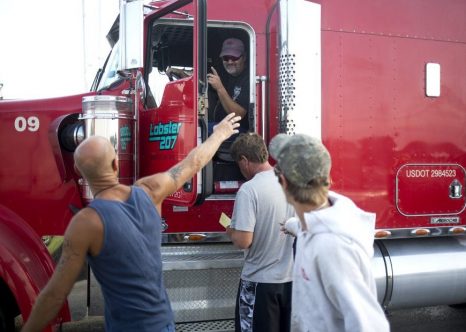
Maine lobstermen tap into union network for retail sales
A few months after buying a lobster pound and processing plant, Maine’s lobstering union is now tapping its connection to unions across the country to rack up online retail sales and reap greater financial returns for its members. The union is now shipping live Maine lobster caught by its 400 members anywhere in the country. The path these lobsters will take on their way from the ocean floor to your door is completely unionized, from the Vinalhaven lobsterman who traps it to the Rockland truck driver who picks it up from a transfer boat to the Lamoine plant worker who packs it to the UPS teamster who delivers it. Anyone can buy them, of course, but the Maine Lobstering Union is definitely looking to make the most of a nationwide union network. click here to read the story 14:31
Fishermen support reversing marine monument designation
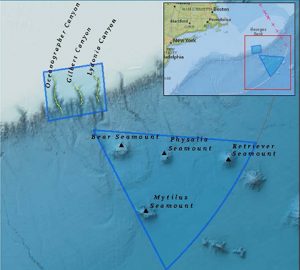 There’s a rich fishing ground a couple of hundred miles offshore used by fishermen from all over the East Coast called the Northeast Canyons. All kinds of commercial fish gather in the plankton-rich waters — from tuna to butterfish, from lobster to squid. “We have probably half our fleet that does all kinds of fishing out there,” said Rich Fuka of the Rhode Island Fishermen’s Alliance. It’s also a distinctive marine environment, with ancient coral and steep canyons.,,, Fuka said nets don’t go deep enough to affect coral and that “the fishermen are well-schooled and well-rehearsed and always participate in anything that has to do with migratory species like mammals, whales, they avoid them.”He pointed out the competition for fishing grounds now also includes offshore wind farms,, click here to read the story 10:34
There’s a rich fishing ground a couple of hundred miles offshore used by fishermen from all over the East Coast called the Northeast Canyons. All kinds of commercial fish gather in the plankton-rich waters — from tuna to butterfish, from lobster to squid. “We have probably half our fleet that does all kinds of fishing out there,” said Rich Fuka of the Rhode Island Fishermen’s Alliance. It’s also a distinctive marine environment, with ancient coral and steep canyons.,,, Fuka said nets don’t go deep enough to affect coral and that “the fishermen are well-schooled and well-rehearsed and always participate in anything that has to do with migratory species like mammals, whales, they avoid them.”He pointed out the competition for fishing grounds now also includes offshore wind farms,, click here to read the story 10:34
Judge orders DFO monitoring reports of rival fishing vessels to be disclosed to the court
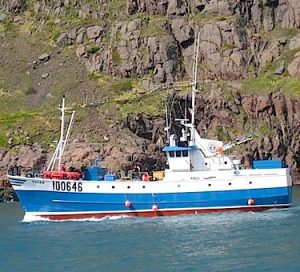 The Nunavut fishing company Masiliit Corp. has won a small victory in trying to prove it was following industry standards when fishing for turbot in Davis Strait in October 2012. Masiliit Corp., a member of the Arctic Fishery Alliance, and its ship master, Captain George Hudson, have been charged under the Fisheries Act for fishing outside of Canadian waters. But in what has become a long and drawn out legal affair, their lawyers have argued that because of Davis Strait’s “narrow fishing channel, unpredictable and strong currents and an irregular international fishing boundary,” it is not unusual, “for fishing nets to drift after they have been set,” Nunavut Justice Sue Cooper summarized in her written judgement. click here to read the story 09:59
The Nunavut fishing company Masiliit Corp. has won a small victory in trying to prove it was following industry standards when fishing for turbot in Davis Strait in October 2012. Masiliit Corp., a member of the Arctic Fishery Alliance, and its ship master, Captain George Hudson, have been charged under the Fisheries Act for fishing outside of Canadian waters. But in what has become a long and drawn out legal affair, their lawyers have argued that because of Davis Strait’s “narrow fishing channel, unpredictable and strong currents and an irregular international fishing boundary,” it is not unusual, “for fishing nets to drift after they have been set,” Nunavut Justice Sue Cooper summarized in her written judgement. click here to read the story 09:59
Fishing Bycatch Regulations Pass Judge’s Sniff Test
 Federal regulators ducked a conservation-minded challenge Thursday concerning rules meant to minimize fishing bycatch. The National Marine Fisheries Service adopted the rules in question two years ago, with approval from the D.C. Circuit. Though the rules requires fishing vessels to occasionally have a biologist document the amount of fish caught and discarded, the group Oceana complained in a federal complaint that the infrequency of such observation undermines its efficacy as a serious check on fishing abuses. U.S. District Judge Ellen Segal Huvelle sided with the agency Thursday at summary judgment, saying the issue comes down to how the Fisheries Service allocates its funding for NMFS, short for standardized bycatch reporting methodology. click here to read the story 09:02
Federal regulators ducked a conservation-minded challenge Thursday concerning rules meant to minimize fishing bycatch. The National Marine Fisheries Service adopted the rules in question two years ago, with approval from the D.C. Circuit. Though the rules requires fishing vessels to occasionally have a biologist document the amount of fish caught and discarded, the group Oceana complained in a federal complaint that the infrequency of such observation undermines its efficacy as a serious check on fishing abuses. U.S. District Judge Ellen Segal Huvelle sided with the agency Thursday at summary judgment, saying the issue comes down to how the Fisheries Service allocates its funding for NMFS, short for standardized bycatch reporting methodology. click here to read the story 09:02
Coast Guard medevacs fisherman off Hampton Harbor, NH
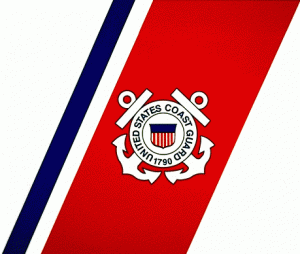 A Coast Guard Station Merrimack River boat crew medevaced a fisherman Friday evening, 6 miles east of Hampton Harbor, New Hampshire. A crewmember aboard the fishing boat Patricia Lynn radioed the Coast Guard for assistance at around 6:45 p.m., stating another crewmember was experiencing symptoms characteristic of a heart attack. A Coast Guard Station Merrimack River 29-foot rescue boat crew heard the call while underway in the area and diverted to assist. The Coast Guard crew took the 30-year-old-man on their boat and brought him to Hampton Harbor State Pier where emergency medical services personnel were waiting. –USCG– 08:13
A Coast Guard Station Merrimack River boat crew medevaced a fisherman Friday evening, 6 miles east of Hampton Harbor, New Hampshire. A crewmember aboard the fishing boat Patricia Lynn radioed the Coast Guard for assistance at around 6:45 p.m., stating another crewmember was experiencing symptoms characteristic of a heart attack. A Coast Guard Station Merrimack River 29-foot rescue boat crew heard the call while underway in the area and diverted to assist. The Coast Guard crew took the 30-year-old-man on their boat and brought him to Hampton Harbor State Pier where emergency medical services personnel were waiting. –USCG– 08:13
Hurricane Harvey Update Statement – Catagory 4 – 600 PM CDT Fri Aug 25 2017
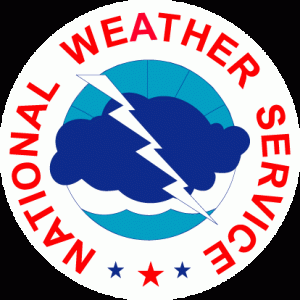 Hurricane Harvey Tropical Cyclone Update, NWS National Hurricane Center, 600 PM CDT Fri Aug 25 2017 – Air Force Reserve Reconnaissance aircraft data indicate that Harvey has become a category 4 hurricane with maximum sustained winds of 130 mph (215 km/h). A station at Aransas Pass run by the Texas Coastal Observing Network recently reported a sustained wind of 74 mph (119 km/h) with a gust to 96 mph (154 km/h). click here to read the update 19:30
Hurricane Harvey Tropical Cyclone Update, NWS National Hurricane Center, 600 PM CDT Fri Aug 25 2017 – Air Force Reserve Reconnaissance aircraft data indicate that Harvey has become a category 4 hurricane with maximum sustained winds of 130 mph (215 km/h). A station at Aransas Pass run by the Texas Coastal Observing Network recently reported a sustained wind of 74 mph (119 km/h) with a gust to 96 mph (154 km/h). click here to read the update 19:30
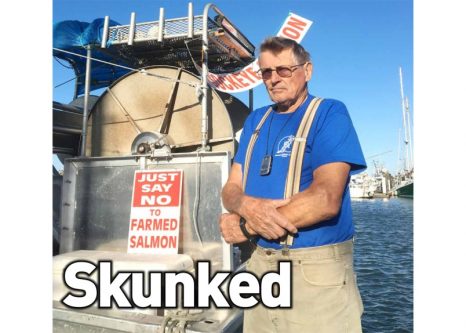
No feast during sockeye famine in Richmond
For a second year in a row, all commercial fishing of the Fraser River’s sockeye salmon has been closed by the Fraser River Panel, the regulatory body that assesses annual salmon runs. Only 1.7 million sockeye are expected to return to the Fraser this year, which is just over a third of the 4.4 million that were expected at the start of the year.,,, The closure should put a premium price on salmon for consumers, according to local fisherman Gus Jacobson. click here to read the story 18:47
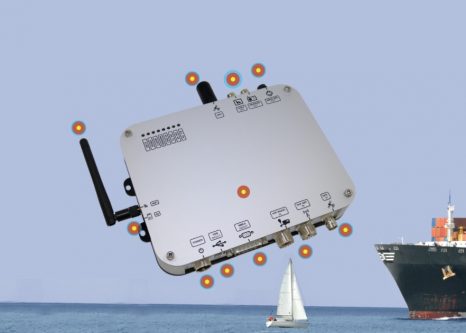
Vessel monitoring technology partnership makes tracking more accurate
Accurate vessel monitoring is now easier with a technology offering that combines monitoring with a transponder. exactEarth’s exactTrax small vessel monitoring technology is now incorporated into the VMS Track-Pro, the newest Class B AIS transponder from Weatherdock. Purpose-built VMS Track-Pro is thought to be the world’s first single-bracket, battery powered and purpose-built AIS-based tracking solution. It is designed to be a secure, easy-to-use, and cost-effective solution for tracking fishing vessels and other small crafts. VMS Track-Pro was developed with extensive input and feedback from fishermen, as well as detailed analysis of homeland security requirements. click here to read the story 17:56
Blue Hill Bay Urchin fishermen troubled by trackers
The start of the early season for divers, rakers and trappers to fish for sea urchins is less than a month away. Early this month, harvesters who work in Blue Hill Bay learned that the Department of Marine Resources will be right there with them on their boats, at least figuratively. Early this month, DMR announced that urchin fishing in most of Blue Hill Bay will be banned except for fishermen who agree to carry an electronic GPS tracking device on their boat and keep it turned on and “continuously recording data” as to the boat’s geographic location throughout the entire fishing season. The rule applies to boats that drag for urchins as well as to boats used by divers, trappers or rakers.,,, “It seems totalitarian,” one fisherman said. “The noose seems to be getting tighter every year.” click here to read the story 16:56
Canada, U.S. launch joint investigation into deaths of 13 right whales
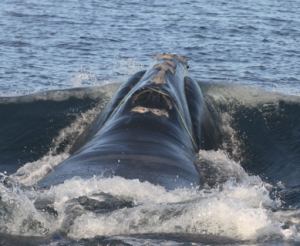 The United States and Canada are launching a joint investigation into the deaths of the endangered North Atlantic right whales, after the United States’ National Oceanic and Atmospheric Administration (NOAA) declared the die-off an “unusual mortality event,” or UME, on Thursday night. Confirmation of the investigation came on Friday, during a phone conference involving representatives of NOAA and Canada’s Department of Fisheries and Oceans (DFO). According to NOAA officials, a UME declaration is only triggered when there is significant die-off in a population and one that demands a significant response. click here to read the story 15:59
The United States and Canada are launching a joint investigation into the deaths of the endangered North Atlantic right whales, after the United States’ National Oceanic and Atmospheric Administration (NOAA) declared the die-off an “unusual mortality event,” or UME, on Thursday night. Confirmation of the investigation came on Friday, during a phone conference involving representatives of NOAA and Canada’s Department of Fisheries and Oceans (DFO). According to NOAA officials, a UME declaration is only triggered when there is significant die-off in a population and one that demands a significant response. click here to read the story 15:59
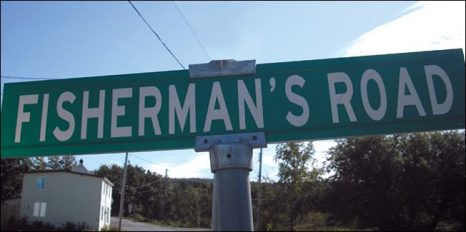
FFAW — Frigging fishermen and Alienating Workers
Good morning NL, all ships at sea, and inshore fish harvesters far and wide. Just so you know, the FFAW-Unifor’s sole right as your union is to negotiate the price of fish, and administer the collective agreement. That’s it. Period. End of FFAW story. When it comes to negotiating fish quotas with Ottawa or compensation packages with Nalcor, the FFAW-Unifor needs your permission. Case in point, the recent Supreme Court of NL case that found the FFAW-Unifor deceived scallop fishermen in the Strait of Belle Isle. click here to read the story 14:05



































